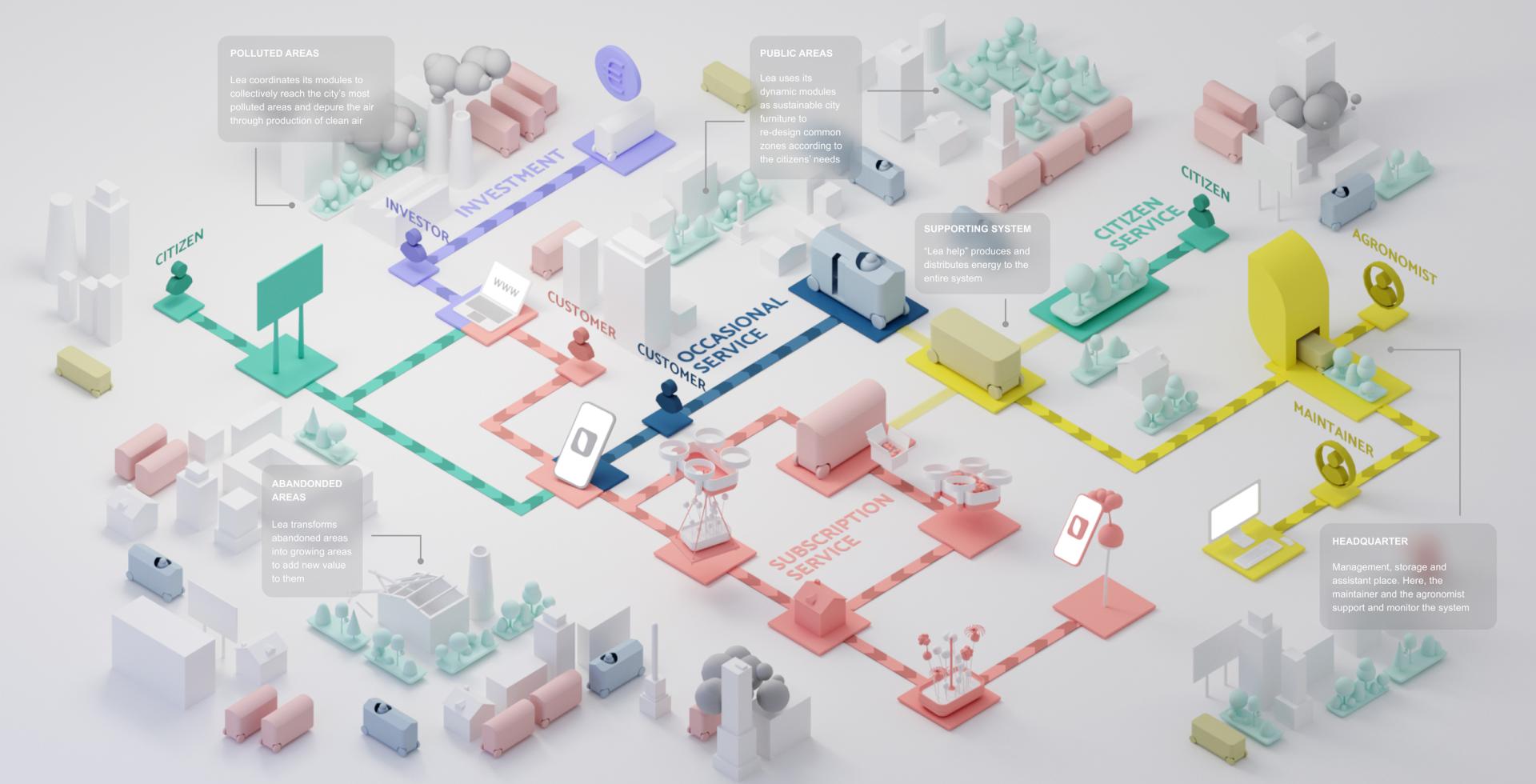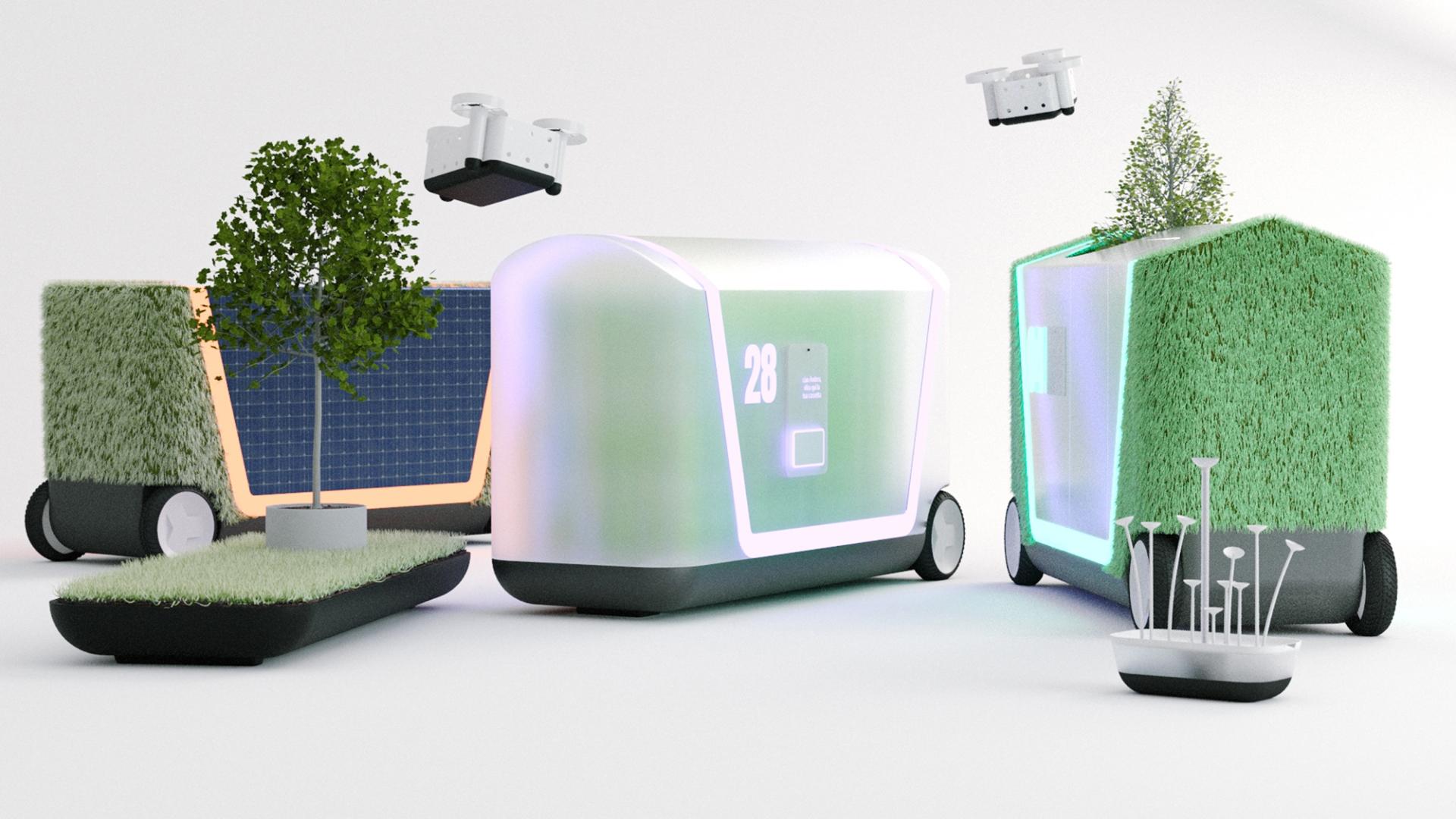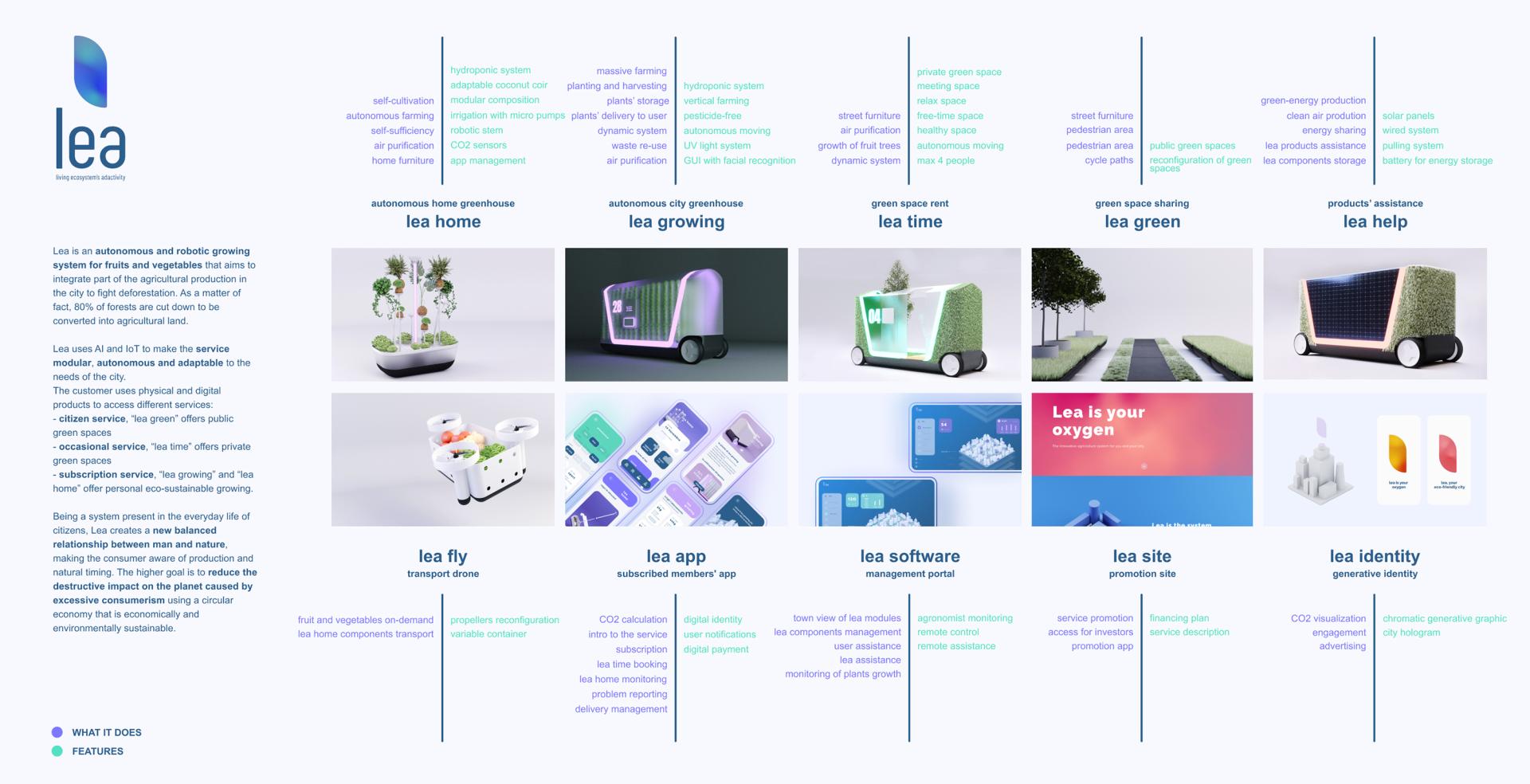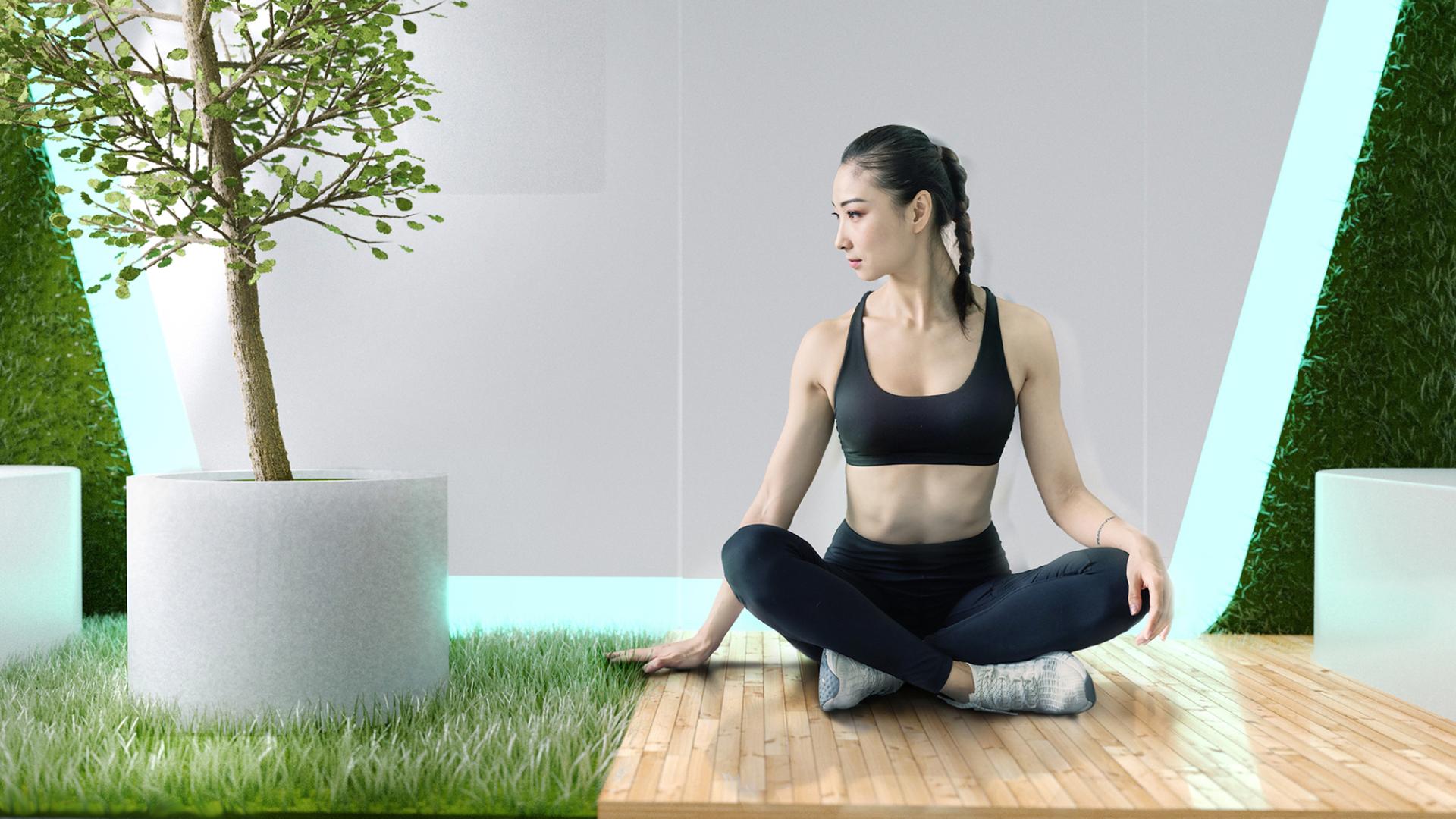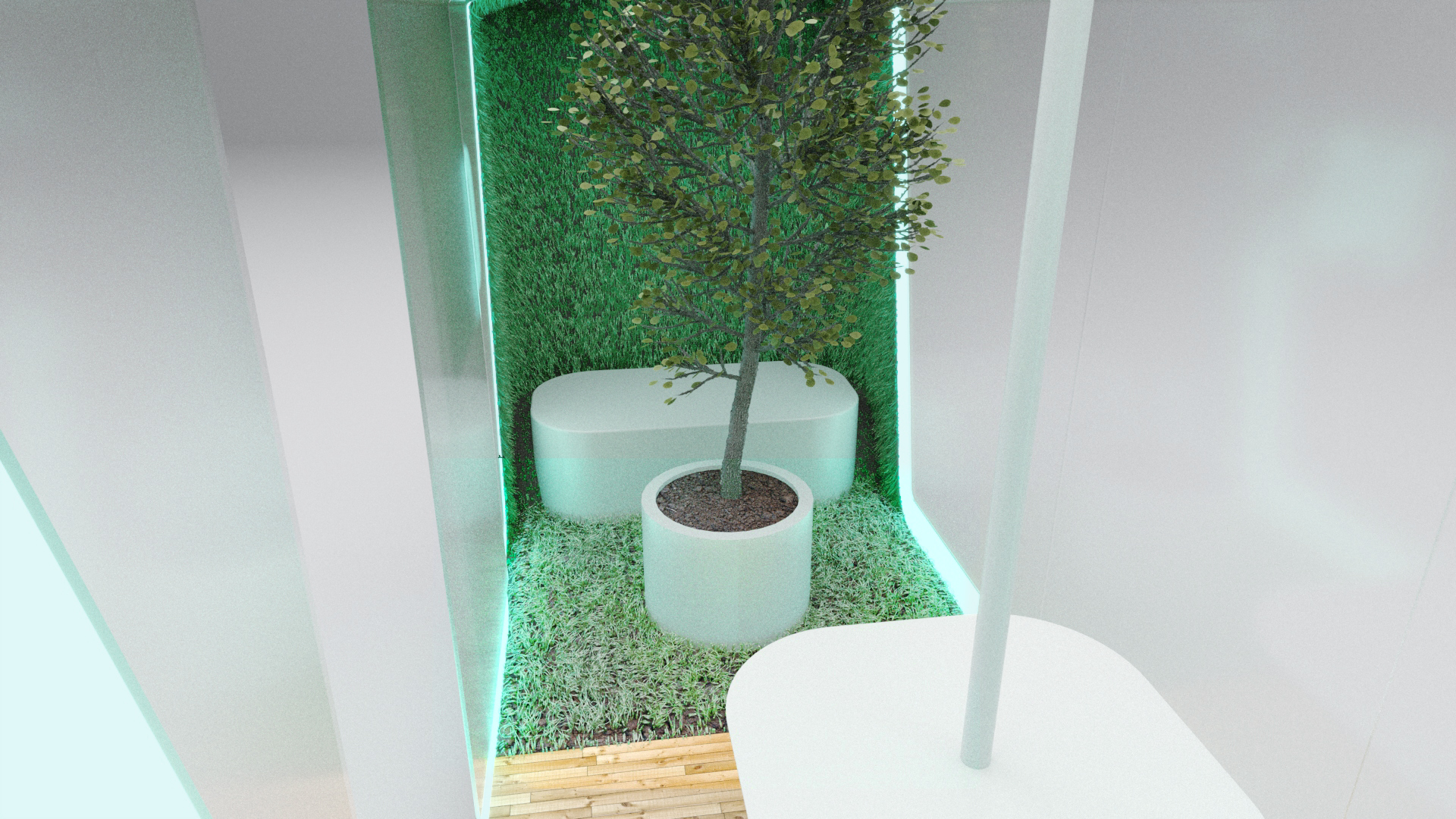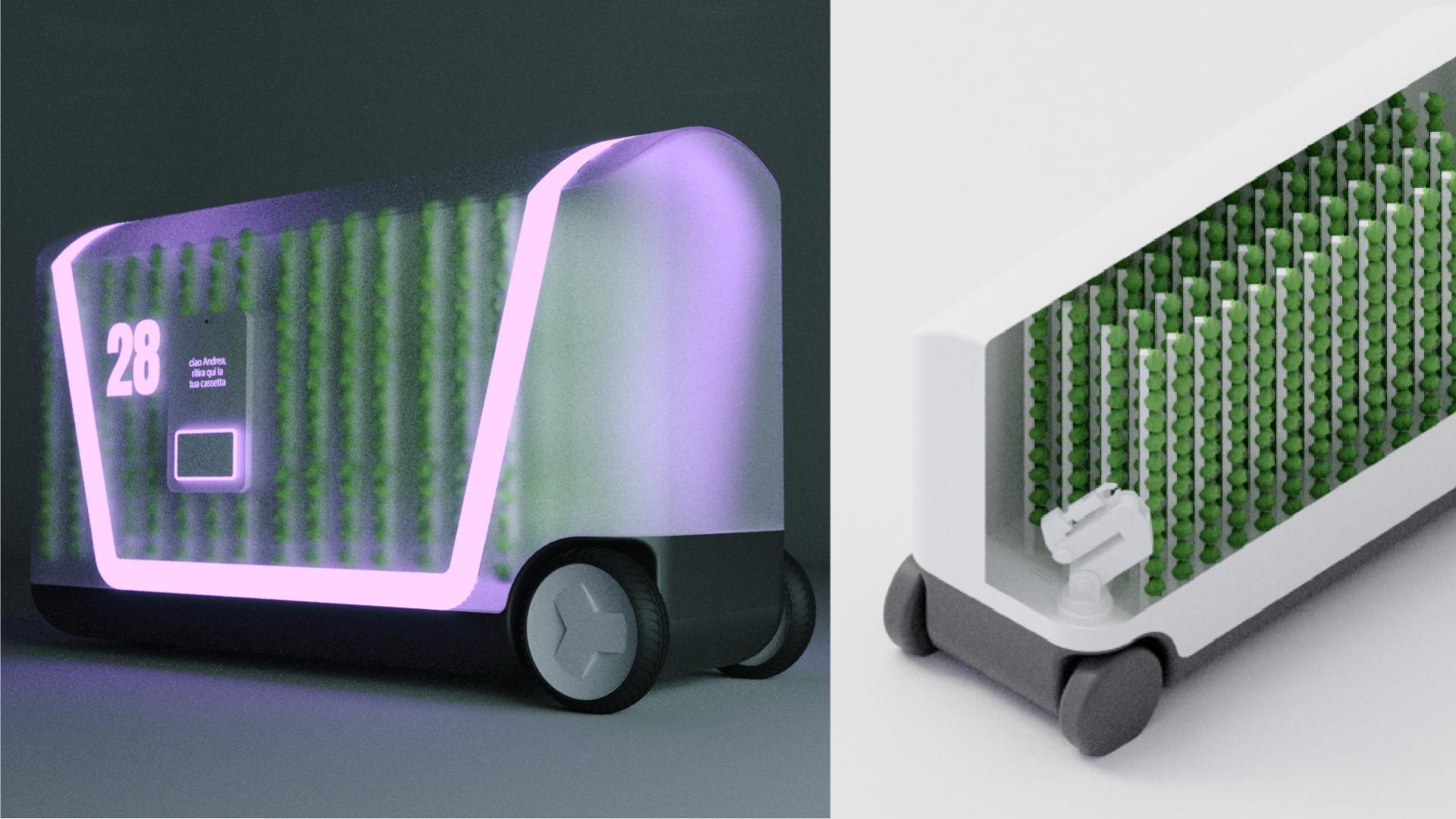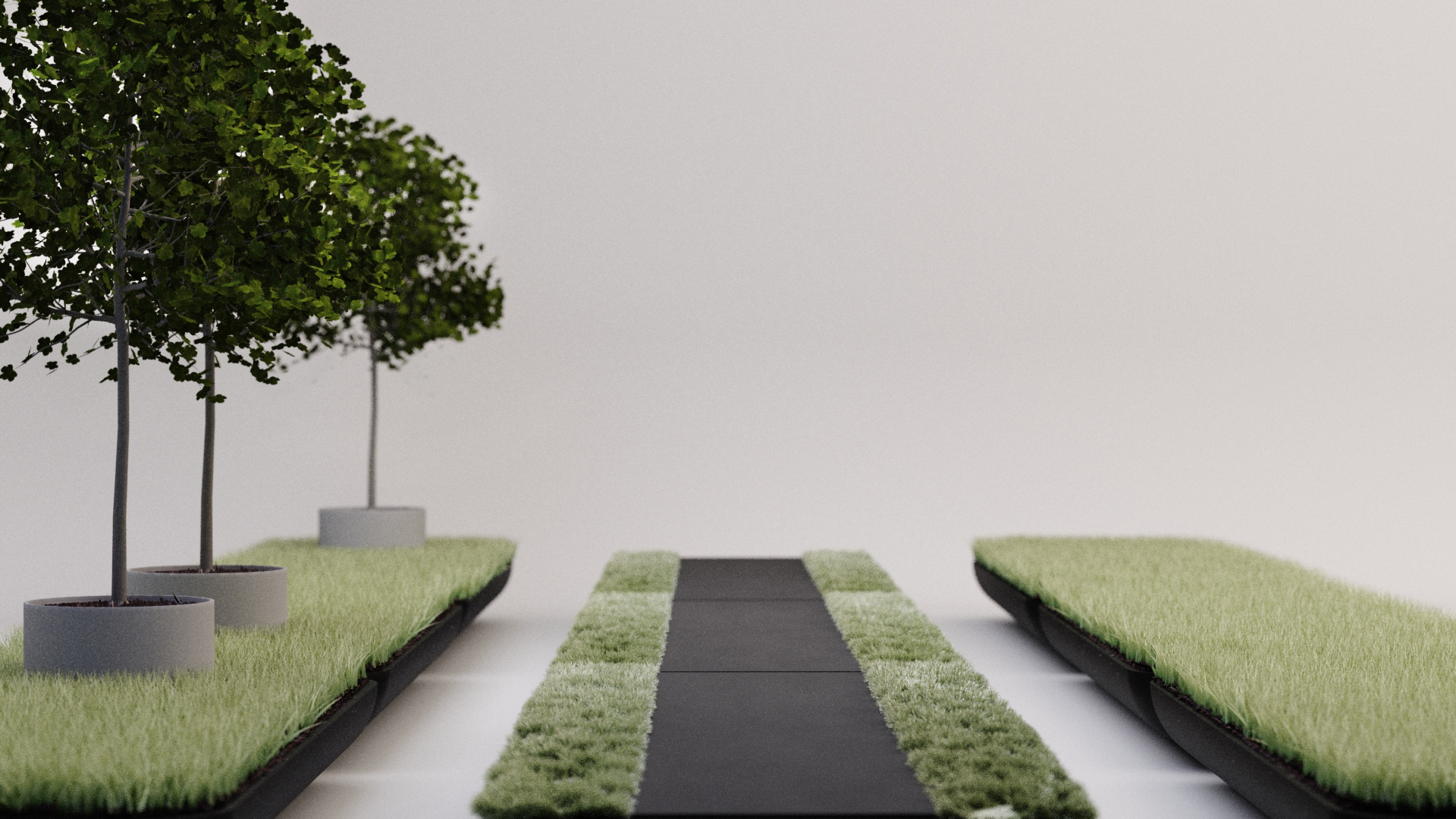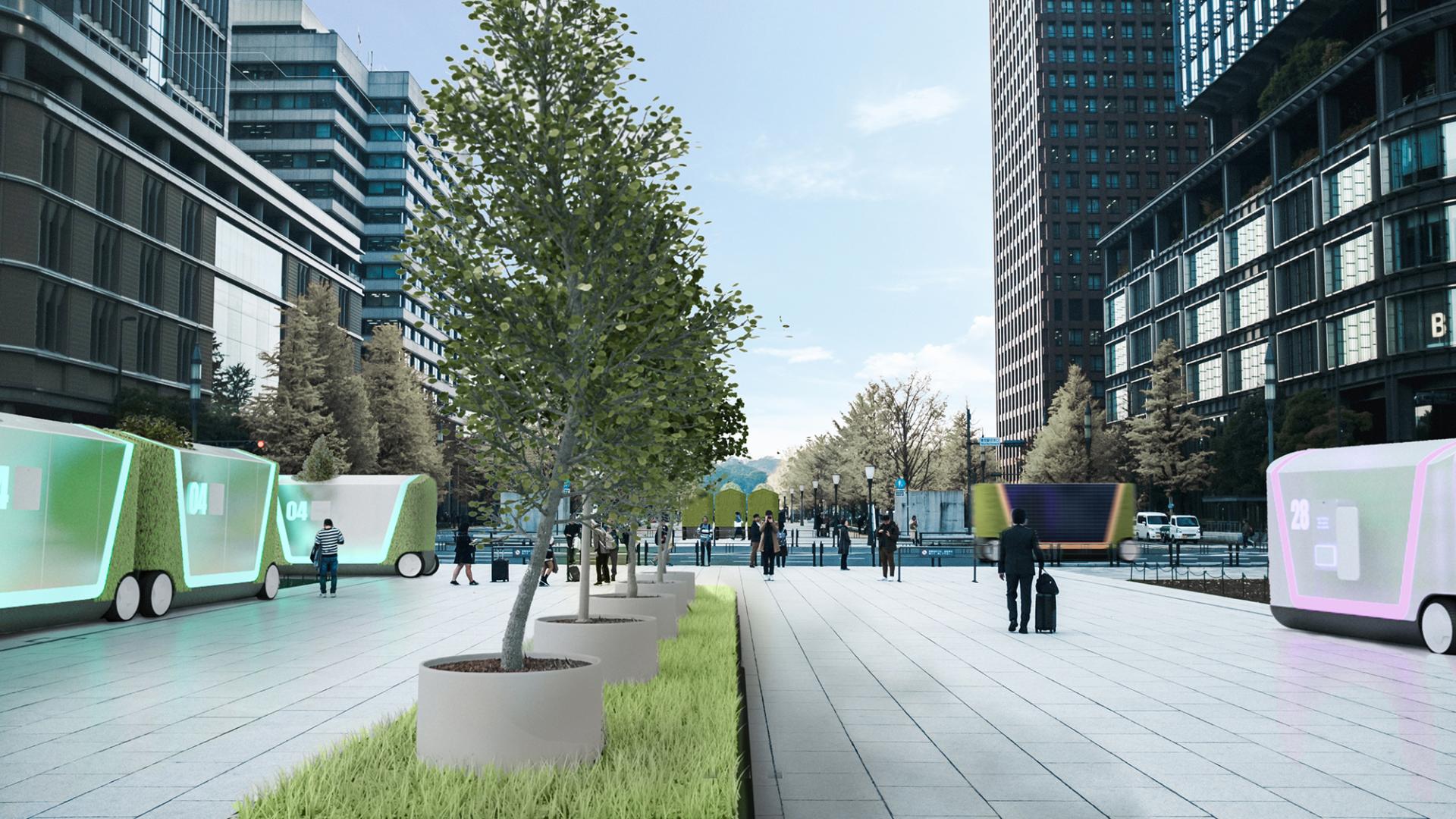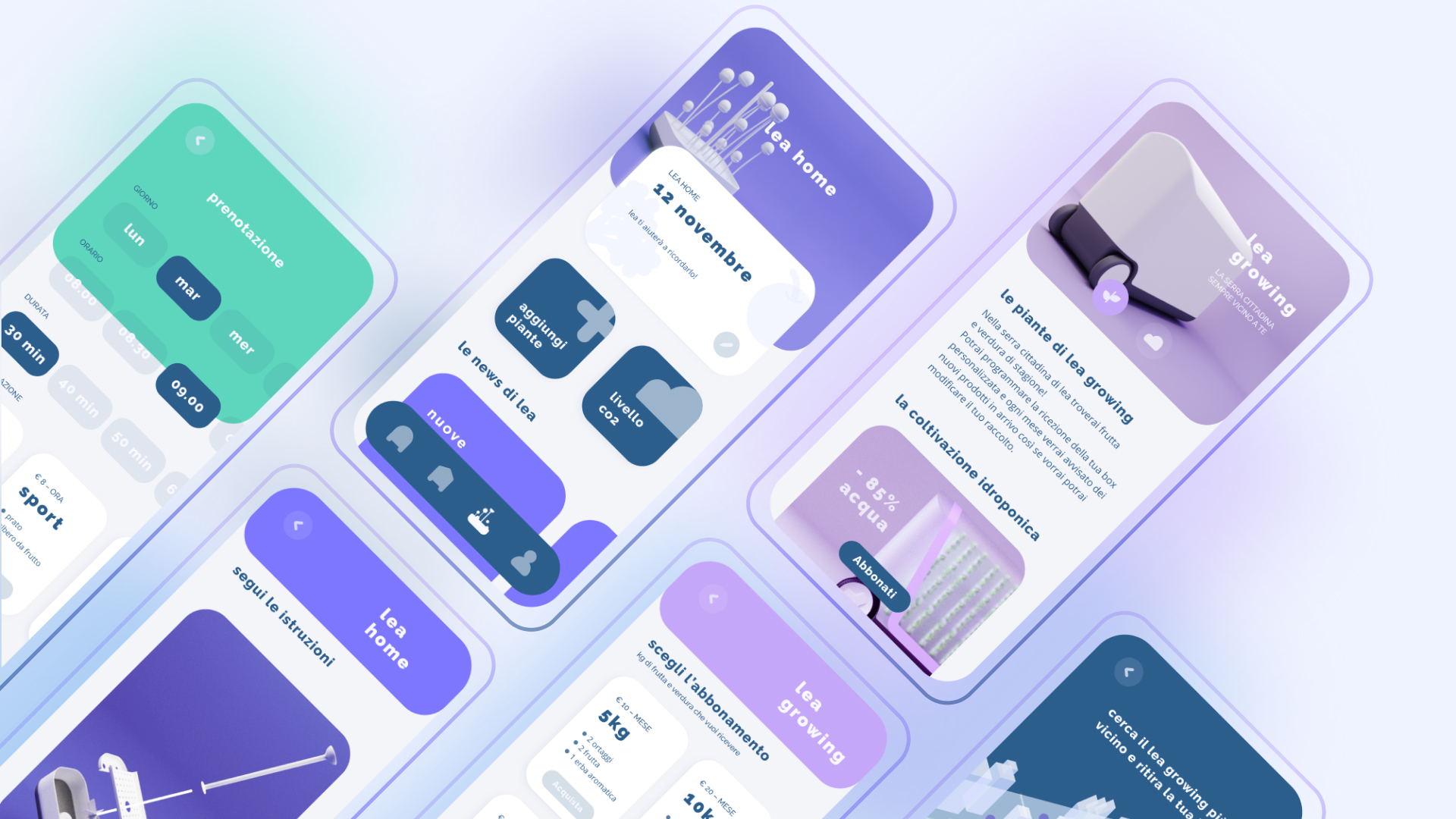LEA - autonomous farming in city
Basic information
Project Title
Full project title
Category
Project Description
Lea is an autonomous and robotic growing system for fruits and vegetables that aims to integrate part of the agricultural production in the city to fight deforestation. As a matter of fact, 80% of forests are cut down to be converted into agricultural land. The higher goal is to reduce the destructive impact on the planet caused by excessive consumerism using a circular economy that is economically and environmentally sustainable.
Project Region
EU Programme or fund
Description of the project
Summary
Lea is an autonomous and robotic agricultural service that can be used by citizens of the future.
Lea uses renewable energy and environmentally sustainable techniques for conscious agricultural production without impacting the environment. Lea cultivates using vertical and precision agriculture in modules with aeroponic and hydroponic systems that reduce water consumption by 80% compared to current irrigation. Lea's modules move around the city, producing fruits and vegetables while making use of unused public spaces. In this way, it reduces the level of co2 in different areas of the city and citizens who subscribe to the system receive natural products.
As a system that is present in the daily lives of citizens, Lea creates a new balanced relationship between people and nature and makes consumers aware of production and natural timing.
https://www.behance.net/gallery/108042577/Lea_autonomous-farming-in-city
Key objectives for sustainability
The Lea project is economically supported thanks to the investors who want to support the project to introduce green in their cities, but mainly thanks to the subscriptions of the citizens. These citizens receive at home natural products grown in "urban greenhouses". In terms of space, it is a sustainable system because it uses self-driving modules that occupy unused spaces of the city or public squares. The system can move or reconfigure these modules according to the needs of the citizens and the city. In this way, the system makes agricultural production more sustainable by reducing the use of large areas of land (usually the cause of deforestation)and giving value to places that did not have it before. Moreover, the system produces the amount necessary for subscribers without generating waste. In fact, "urban greenhouses" use hydroponic and vertical growing systems to reduce water consumption and optimize space. At the energy level, the system is supported by the collection of solar energy, which is redistributed between the batteries of the different Lea's modules. All this is part of a circular economy that uses robotics to make cultivation autonomous and controlled. All this also aims to reduce the waste of fruits and vegetables from mass production.
https://www.behance.net/gallery/108042577/Lea_autonomous-farming-in-city
Key objectives for aesthetics and quality
The goal is to create "urban greenhouses" with an autonomous driving system and "domestic greenhouses" for the home to bring nature back into cities and people's lives. Lea's products are designed to provide various services to citizens and give people a new experience of growing and coexisting with plants. All these products have an adaptive and non-invasive design in harmony with the context. Lea's products are:
Lea Growing - hydroponic urban greenhouses that are autonomous and have a robotic system for the production of fruits and vegetables. They autonomously produce the right amount of agricultural food for subscribers and occupy different locations in the city.
Lea Time - small private green spaces in the city. They can be rented to experience relaxing moments in the midst of nature, even in extremely urbanized cities.
Lea Home - domestic greenhouse for home production of fruits and vegetables.
Lea Fly - drones for home delivery of fruits and vegetables.
Lea Help - it is the support of the whole system and produces renewable energy that is fed into the batteries of all modules.
Lea Green - it is a reconfigurable green space for the city.
The final experience is to limit the purchase of agricultural products in the supermarket, but to receive them directly at home from the urban greenhouses of Lea. We imagine that large companies, but also restaurateurs can support this project by offering space for Lea's modules and in return receive seasonal fruits and vegetables at km0.
https://www.behance.net/gallery/108042577/Lea_autonomous-farming-in-city
Key objectives for inclusion
The goal is to increase the inclusion of nature within people's lives and make this coexistence balanced. Lea gives nature the possibility to become more fluid to live in harmony with citizens through an exchange of resources. We also aim to educate citizens about the natural rhythms of plants and their seasonal cycles. We want to make nature and man coexist within the same spaces to establish a new and more inclusive relationship.
https://www.behance.net/gallery/108042577/Lea_autonomous-farming-in-city
Innovative character
The greatest innovation is mobile and decentralized hydroponic cultivation. In this way we do not need to occupy large acres of land and we do not steal land from forests for agricultural production. So we give plants the opportunity to move around the city in controlled greenhouses and with autonomous driving. This brings oxygen into the city and gives new value to places that are no longer in use. By using innovative technologies such as root control, hydroponic cultivation, antagonistic insects and robotic systems, the modules can grow plants on their own and produce the right amount of fruits and vegetables for the subscribers' needs.
The innovation also lies in the scalability of the project, which can start from small neighborhoods with a few subscriber families and a few Lea Growing modules and then arrive in large cities. Moreover, with the services explained above, the project relates to the subscriber user, but also to the non-subscriber citizen who receives benefits such as more oxygen in the city, greener and reconfigurable public spaces.
https://www.behance.net/gallery/108042577/Lea_autonomous-farming-in-city

